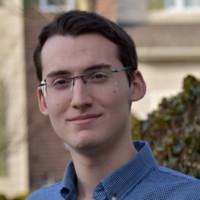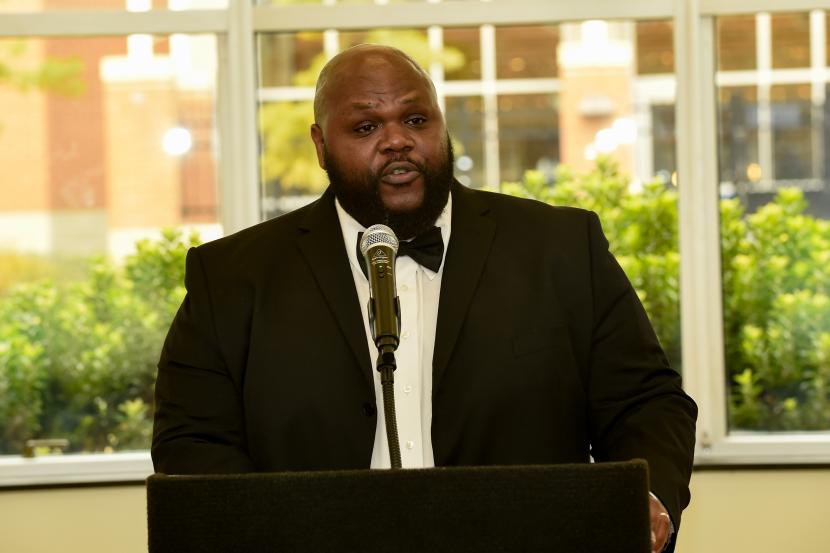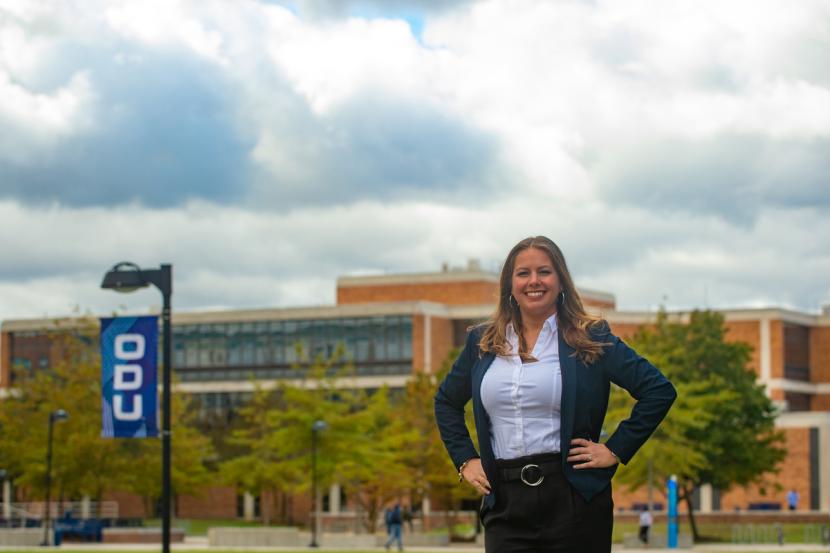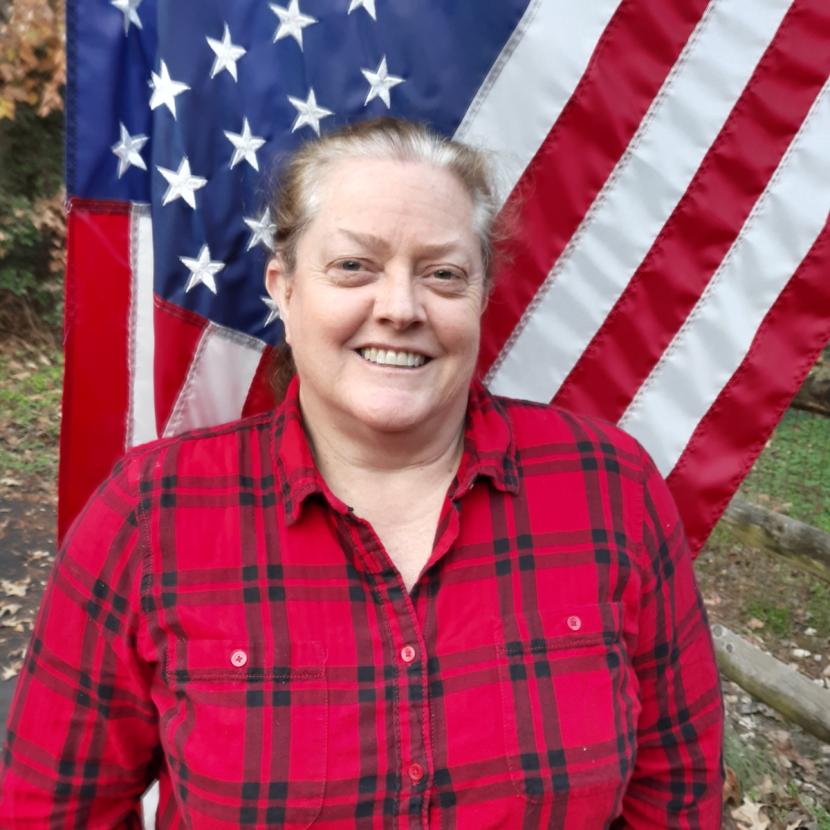"As I started learning on my own, like watching YouTube videos about JAVA, I found out there's so much more in computer science," Angelos Angelopoulos said.
By Tiffany Whitfield and Maya Reid
Persistence is key when it comes to coding and computer programming. And Angelos Angelopoulos is relying on it as he prepares to receive his Bachelor of Science in computer science in December.
Just as in computer programming, Angelopoulos took methodical steps in life to end up at Old Dominion University.
Angelopoulos' passion for computer science began at age of 12, when he taught himself programming.
"Back then I knew that I wanted to study computer science, and that's what I wanted to do for the rest of my life because it just clicked with me," Angelopoulos said.
He became interested in programming because of video games. By age 15, he created his first app.
"As I started learning on my own, like watching YouTube videos about JAVA, I found out there's so much more in computer science," said Angelopoulos. He felt an immediate connection to programing, which fueled him to learn more.
Angelopoulos is originally from Greece and came to America during his senior year of high school after his father relocated to Norfolk as a part of the North Atlantic Treaty Organization (NATO). Moving to Hampton Roads expanded his passion for computer science. His coding background provided him an advantage when he started at ODU.
He's had the opportunity to work side by side with ODU faculty and Department of Energy scientists. As part of a collaboration between the Center for Real-Time Computing (CRTC) and the Thomas Jefferson National Accelerator Facility, Angelopoulos has contributed to four machine-learning models developed to address the problem of classifying and filtering particle trajectory data from the CLAS12 detector at the Jefferson lab.
The work-in-progress getting the most attention from the science community is a new algorithm for identifying protein pockets and cavities, which is being applied to the analysis of SARS-CoV-2 protein structures.
"The project has received interest from the Mayo Clinic and Antibody Solutions," Angelopoulos said.
Angelopoulos, who is also a student in the Patricia and Douglas Honors College, has worked with ODU faculty in physics and computer science to build an application using machine learning to assist in image guidance during surgeries to remove brain tumors He has also developed augmented-reality molecular visualization software to assist in science technology engineering and mathematics education.
"You can wear augmented reality headsets and see molecules as they rotate in front of you in the real world instead of reading about it in a book," he said.
Users can also create their own virtual environments with any molecules they want.
"The purpose of this project is to make emerging technology accessible for K-12 STEM education, while also enabling educators to create their own tailored experiences via custom environments," said Angelopoulos.
"Angelos is an outstanding undergraduate researcher," said Nikos Chrisochoides, computer science professor and advisor. "He has a passion for research and has shown great competence in all of the projects he has worked on with my graduate students."
In May, he received the Provost's Outstanding Undergraduate Researcher award.
He attributes his aptitude for research in software development "to being persistent" and hopes others can realize how essential persistence is, too. He plans to attend graduate school to continue his career as a software engineer.
He shares some advice for future Monarchs.
"Get a job on campus, meet professors and expand your network. This will help you get the most out of your education," he said. "Most importantly, attend all of your lectures!"
Related News Stories
Larry Giddens’ Journey to His Master’s Degree Included an International Detour
He first enrolled at ODU 24 years ago before embarking on an opera singing career that took him around the world. (More)
Veteran Finds Home Near the Ocean - and at ODU
First-generation student and Navy veteran Natasha Dumm finds passion in business analytics and supply chain management. (More)
Engineering Student Didn’t Let Deafness Get in the Way of Earning Her Master’s Degree
Kathy Carpenter hopes her story serves as an inspiration to others. (More)







